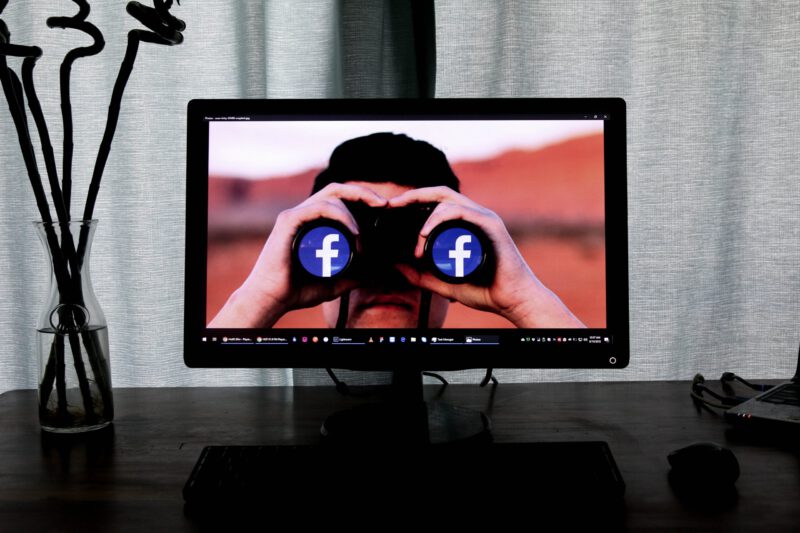When WeChat was released in 2011, it became the most popular standalone mobile app in the world with over 1 billion monthly users, eclipsing Facebook in monthly traffic, according to Statista.
Facebook has since overtaken WeChat, boasting over 2.7 billion users monthly, but the Chinese social networking site continues to gain new users at a higher rate than the silicon valley giant.
One tactic that has contributed to the success of Facebook is the company’s ability — due to its vast resources — to simply buy potential rivals out.
Instagram was acquired by Facebook Inc., now Meta Platforms Inc., in 2012 for $1 billion, effectively snuffing out the competition in the space for the next eight years.
Oculus, a virtual reality gaming company, was subsequently acquired for around $2 billion in 2014.
A Mirror Image
Similarly, WeChat messaging is the most prevalent form of communication in China, overtaking email as the most used instant messaging application.
When WeChat, owned by Tencent Holdings Inc., was created in 2011, it was a messaging application much like Facebook messenger or WhatsApp. The app featured a list of conversations the user is engaged in and has a tab of all of his or her contacts.
In 2012, WeChat added a Moments feature that is similar to an Instagram Story.
Recently, the app has expanded further to include ride-hailing and investment banking. Updates in 2018 included floating windows, much like what Facebook Messenger offers, and a Top Story tab that features news and popular posts by friends.
Essentially, WeChat’s founders used Facebook’s model to create an equally popular, yet more sinister platform.
Unlike the top US social media applications, a new user has to be verified by another user to create a profile; this is done by the current user scanning a QR code or using a phone number or unique ID to verify the new user. This created a subtle, but psychologically powerful “in-group” mentality among the users.
Now, the app is used for everything in China from paying for a meal to booking hotels. When paying with WeChat, the user even has the option to use a biometric authentication tool to authorize the transaction.
Who Controls Your Data?
The main difference between US-based social media platforms and China’s WeChat is who controls the user data. However, that paradigm is changing. Virtually all social media harvest data to sell to third parties. This fact was made public when Facebook paid over $600,000 in fines due to its role in data harvesting in the Cambridge Analytica scandal.
Cambridge Analytica purchased Facebook user data in the years leading up to the 2016 presidential election. The data was then used to create psychological profiles of Facebook users in order to target them with curated political ads.
WeChat works in a similar fashion, but instead of just harvesting data to sell to third parties, it freely gives the information to the Chinese government. The close ties between the government and Tencent inc. have resulted in mass surveillance and a nationwide social rating system known as a “social credit score.”
“There are many functions in WeChat that we just can’t live without,” Zhang Qingfang, a Beijing-based human-rights lawyer, told the Wall Street Journal, adding that his WeChat communications have also come under surveillance.
Therein lies the problem with massive social media platforms used for everything from news consumption to buying and selling goods. Facebook in particular is now coming dangerously close to becoming the new WeChat.
Did You Read the Terms of Service?
According to Facebook’s terms of service, what copyrighted material can be posted depends on whether the post meets fair use standards including: “The purpose and character of the use, including whether such use is of a commercial nature or is for nonprofit educational purposes; the nature of the copyrighted work; the effect of the use upon the potential market for or value of the copyrighted work.”
Twitter’s terms of service also state, “We reserve the right to remove Content that violates the User Agreement, including for example, copyright or trademark violations or other intellectual property misappropriation, impersonation, unlawful conduct, or harassment.”
Therefore, users must be careful posting any content on social media sites due to the arbitrary censorship the companies can exert in using published content.
Because users agree to these terms of service, they effectively legally forfeit their content to companies like Twitter and Facebook.
Most social media companies state in their terms of use that individuals own the content they create and post in the companies’ online platforms. Twitter’s terms of use contract states, “You retain your rights to any Content you submit, post or display on or through the Services. What’s yours is yours — you own your Content (and your incorporated audio, photos and videos are considered part of the Content).”
However, Twitter’s terms of service go on to state, “By submitting, posting or displaying Content on or through the Services, you grant us a worldwide, non-exclusive, royalty-free license (with the right to sublicense) to use, copy, reproduce, process, adapt, modify, publish, transmit, display and distribute such Content in any and all media or distribution methods now known or later developed (for clarity, these rights include, for example, curating, transforming, and translating).”
By analyzing the terms of service for various US social media apps, it appears social media platforms are working in tandem to usurp intellectual property rights by claiming original content as their own and silencing people who do not agree with the companies’ political agenda.
Executive Decisions
Twitter and Facebook banned former president Donald Trump’s accounts they deemed to be in violation of their terms of service without any government mandate. Facebook’s new news feature is curating news according to employees’ opinions on what is newsworthy and factual. In an even greater step toward totalitarianism, Facebook is now working with the World Health Organization to flag and delete posts and pages that contain information on COVID-19 that are deemed misinformation. Opinions on vaccine mandates have been caught in these purges.
Privacy in the modern era is almost non-existent. Social media users have given up their right to privacy in place of convenience. The problem with this is that more and more, social media giants are acting like dictators.
This is nothing new for China, but in the US, companies like Facebook are incrementally becoming more like their Chinese counterpart, WeChat. First amendment rights are being hampered at an alarming rate. If this trend continues, consumers of social media will likely see more parallels between WeChat and US-based social media platforms in the years to come.










